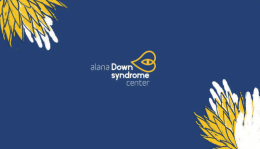Children are one of the groups most affected by climate emergency and need to have a voice and a leading role in environmental policies and, by building a better world for them, we will build a better world for everyone. Under this perspective, Alana Institute lands in Egypt this November to participate in the United Nations Climate Change Conference (COP 27), an annual conference promoted by the United Nations (UN) to mitigate the impacts of climate change through mechanisms that can be applied globally.
COP 27, which is usually attended by heads of state, businesses, decision makers and activists, has been held annually since 1995. In 2020, the event was suspended due to the Covid-19 pandemic. The COPs have resulted in some of the most important environmental agreements in history, such as the Paris Agreement, which, among other things, aims to keep global temperature increase below 2°C.
“Alana Institute’s mission is to promote and protect children’s rights as an absolute priority. Our main goal at the COP is to advocate for placing children’s rights at the center of the debate on climate discussions in order to defend their right to life and to a balanced and healthy environment,” explained Laís Fleury, International Relations Officer of the Alana Institute.
Children at the center of the COP negotiations
COP 27 started on November 6, in Sharm el-Sheikh, Egypt, and is expected to bring intense debates on climate finance, climate adaptation and compensation for losses and damages (measures to repair those impacted by the consequences of climate extremes, such as floods). It is also, once again, seeking ways to limit global warming to a maximum of 1.5°C. In these discussions, the Alana Institute hopes to bring children to the center of the negotiations, with special attention to children in Brazil and the global south.
– Read also: ‘We need to ensure that children have a future in the present’
This is the second time that the organization participates in the UN conference. In 2021, the Alana Institute was at COP 26, in Glasgow, Scotland, participating in urban interventions, panels and round table discussions. The Child and Nature program took the Grey Bubble of the Free to Play Outside campaign to the city, which gives visibility to the problem of air pollution and invites families to engage in actions towards clean air for children around the world. It also participated in the roundtable discussion “Climate Justice: Hope, Resilience, and the Fight for a Sustainable Future”, about the injustices that comprise the issue of climate change.
Lunetas, a journalism website dedicated to the world of childhoods, presented the impacts of the climate emergency on Brazilian childhoods in the panel “The voices of multiple childhoods on climate emergency: for a future in the present”, and the Alana Foundation was part of the panel “Stop burning the Pantanal and the Amazon”, which addressed the importance of keeping the forest standing, preserving biodiversity and drastically reducing burning and CO2 emissions.
This is because it is children who form one of the most vulnerable groups to the climate crisis. They are the ones who suffer its effects the most, as their development is affected and their rights are violated by consequences ranging from natural disasters to food and water shortages.
To put it in perspective, more than one in every four deaths of children under five years of age is directly or indirectly related to environmental risks. Furthermore, approximately one billion children and adolescents live in one of the 33 countries classified as posing extremely high risk, including Brazil. Hence, the importance of reinforced and specific measures.
Plan to ensure climate justice for children
Integrating children’s rights into climate negotiations is critical. To this end, it is important that COP 27 participants develop an appropriate plan of action to ensure climate justice for children. The Children Action Plan, inspired by the Gender Action Plan, is one of the initiatives that aims to promote knowledge and understanding of climate actions that are sensitive to children and their coherent integration into the implementation of the United Nations Framework Convention on Climate Change (UNFCCC).
Another important point for the round of negotiations is to increase and accelerate investment in child and youth responsive adaptation in disaster risk reduction and mitigation measures. There is an urgent need to reach children at greatest risk and advocate for child-sensitive criteria in the integration of multilateral funds.
During COP 27, Alana Institute will seek to ensure that child protection is reflected in the results achieved by the planned workshops of the Glasgow-Sharm el-Sheikh work programme, a two-year work program between Glasgow and Sharm el-Sheikh on the global goal that was signed at COP 26, as well as to establish guidelines for countries’ national plans with child-centered adaptation actions.
In addition, the Alana Institute, together with several international organizations, is at the forefront of a movement called the “Children First Climate Movement”, aimed to include children’s rights in the results of climate negotiations.
Empowering society with environmental education
The Paris Agreement, established at COP 21 in 2015, provided guidelines to empower society for climate action through education, training and other measures. At the 2021 conference, countries advanced the intention to promote this empowerment through the Glasgow Work Programme on Action for Climate Empowerment, which sets out measures for policy coherence, coordinated action, monitoring and evaluation.
The first sessions of the Action for Climate Empowerment (ACE) held in July this year in Bonn, Germany, were directed towards youth, with specific and one-off recommendations for children, such as, for example, education and communication training on climate. Now, at COP 27, the subject must be raised again with the objective of incorporating recommendations on child protection and promoting workshops that discuss intergenerational equity and education in contact with nature.
– Read also: 13 environmental projects created by children and young people
Children as a priority in climate finance mechanisms, loss and damages
No financial mechanism established at the COP to date has had resources directed to the protection of children, although in some of them there is mention of children’s needs and priorities for certain policies. This is why the Alana Institute suggests that COP 27 create a definition of “child-sensitive climate finance” in the Standing Committee on Finance, a permanent finance committee created with the objective of helping the COP to improve financial coordination of climate change actions.
The organization also advocates including the best interests of children in the New Collective Quantified Goal on Climate Finance, earmarking resources and child protection in favor of developing countries. One of the goals is to enable an yearly fund of at least US$100 billion by 2025, taking into account the needs of developing countries. In addition, another point is that any progress on a loss and damage agreement must have a child-sensitive perspective, since children are the ones most impacted by these changes.
Respect for gender equity, especially that of girls
In the programs defined in previous conferences (such as UNICEF’s Gender Action Plan), girls are mentioned only in items related to participation and superficial leadership in some events. We need to move forward to ensure that girls and young women from vulnerable communities are active in decision-making. Another important point is to demand that countries report on their effective measures for gender equity and develop a report in this regard.
– Read also: Gender equality can help fight the climate crisis
Children as priority in ocean discussions
At COP 26, participating countries signed a pact to strengthen actions related to ocean protection and prepare an informal synthesis report for countries to present at COP 27. The dialogue included youth, but issues related to the guarantee of human rights did not have a solid presence in discussions. Countries must now be asked to prioritize actions for the oceans that also protect the rights of children.
In this sense, it is important to establish ocean-related adaptation guidelines to strengthen the resilience of coastal and fishing communities and, consequently, their children; to mitigate loss and damage, especially with regard to ocean acidification as a long-term impact on children; and to call for a specific report on childhood and climate in the context of oceans.
– Read also: Children narrate the impact of mining in the Chapada Diamantina
Children’s participation at COP 27 and its mechanisms
Children’s voices must be heard through their meaningful participation in the work of UNFCCC members. This is how the outcomes will reflect their concerns, perspectives and ideas. In addition, member countries should seek the collaboration and input of human and children’s rights bodies and experts.
The United Nations Committee on the Rights of the Child has taken a significant step to hold governments accountable to ensure that children live in a clean, green, healthy and sustainable world by providing guidance on how children’s rights are impacted by the environmental crisis and what governments should do to uphold these rights.
This effort should be used as a tool to align the policies built by the UNFCCC, bringing the importance of General Comment 26 into the climate negotiations, which was prepared with the participation of the Alana Institute and addresses children’s rights and the environment, with special focus on climate change.
“In 30 years of the UNFCCC, we have never had a specific agreement on children’s right to climate justice. General Comment 26 can bring a solid base of recommendations for a commitment from nations to combat the climate crisis, putting children first”, stated JP Amaral, coordinator of the Child and Nature program of Alana Institute.
Faced with so many goals and the urgency of moving forward in combating the climate crisis, putting children and their rights at the center of all processes and negotiations will allow for a more cooperative process in all areas, such as mitigation, adaptation, financing, as well as loss and damage. A healthy climate for children is a healthy climate for all.
– Read also: What can we learn from the childhood of indigenous children?










